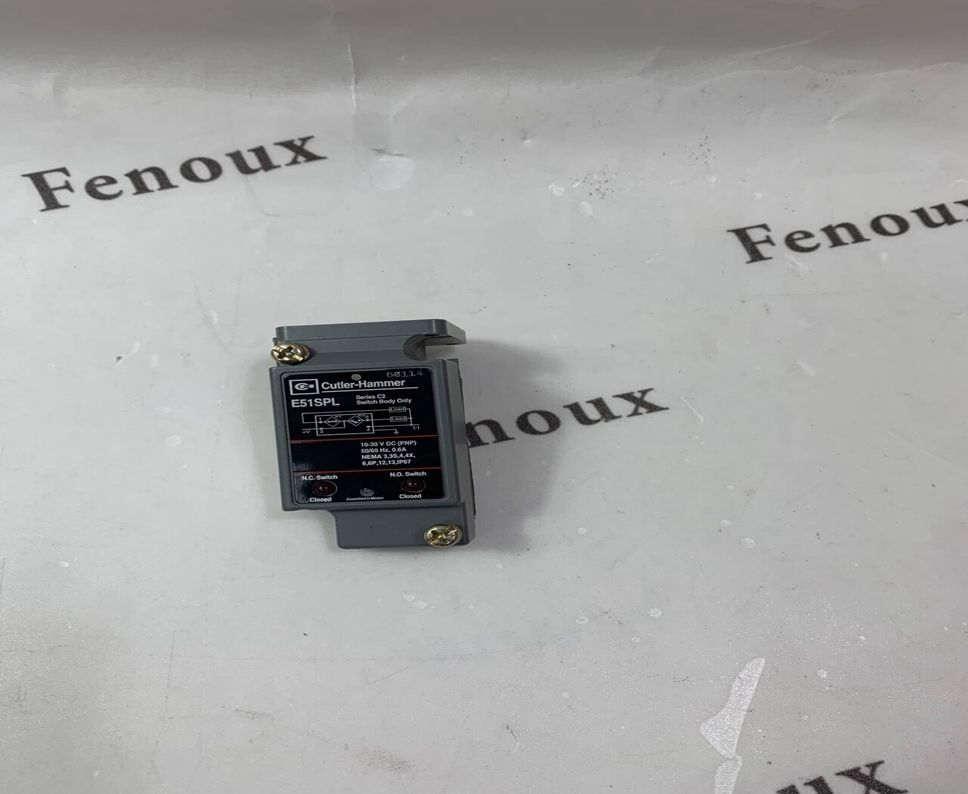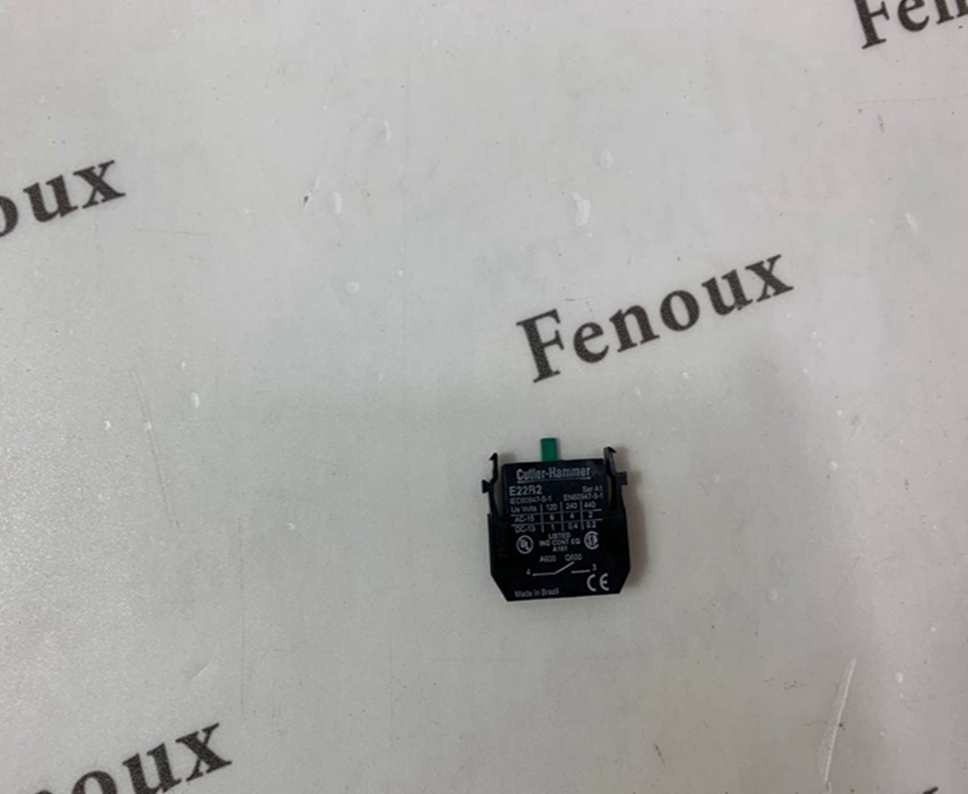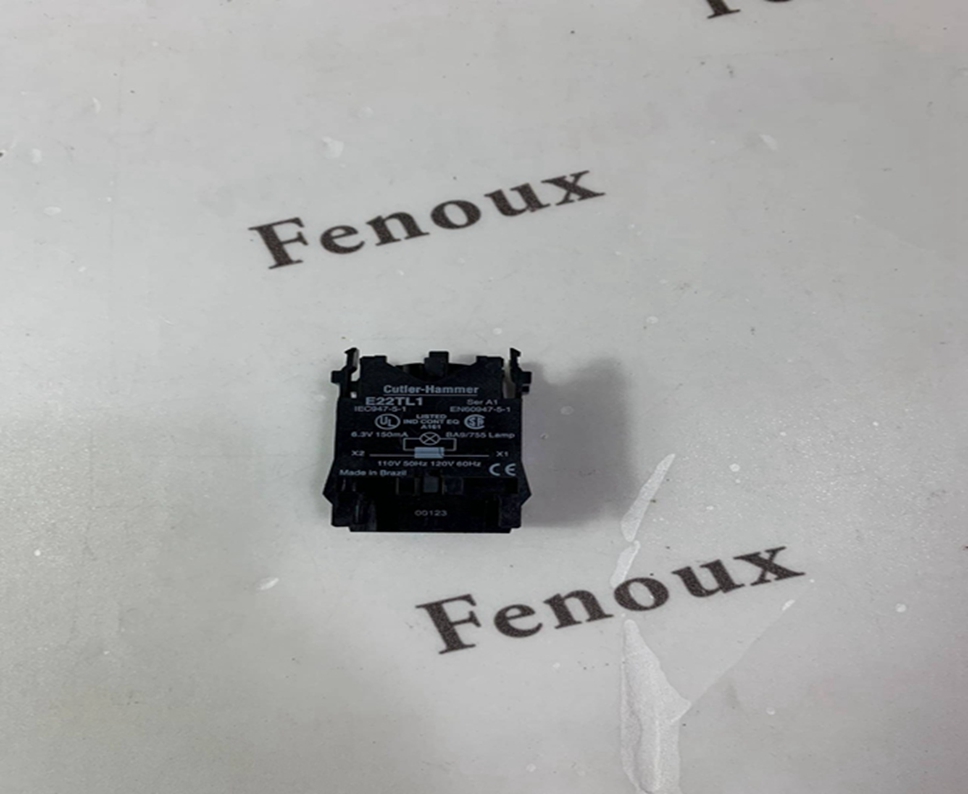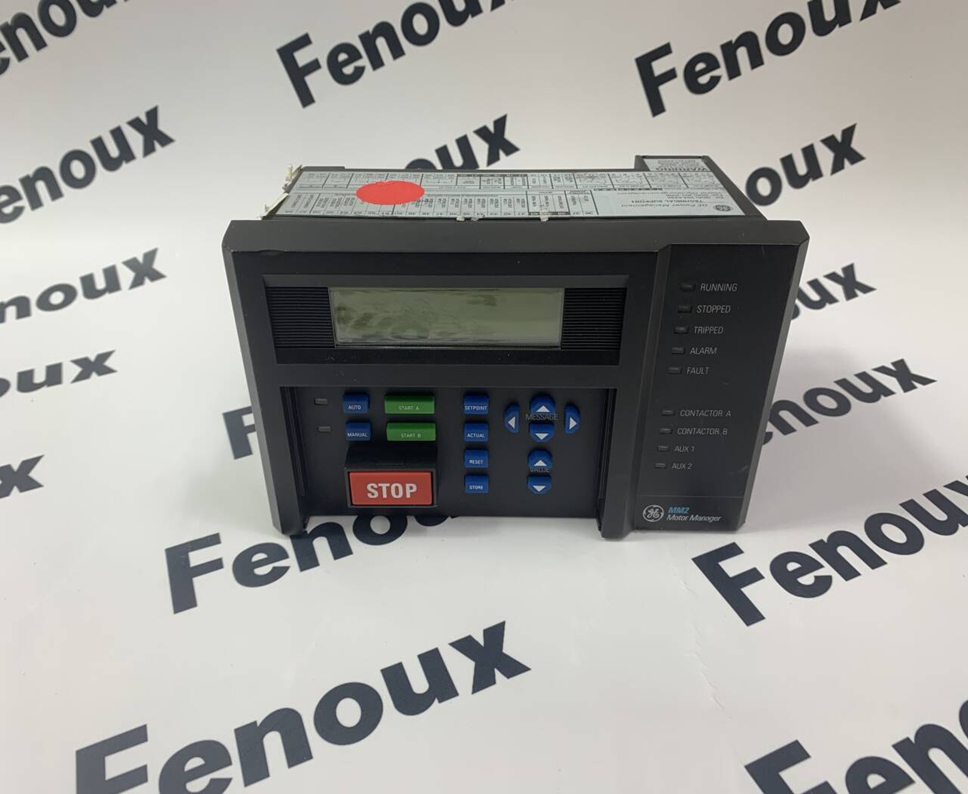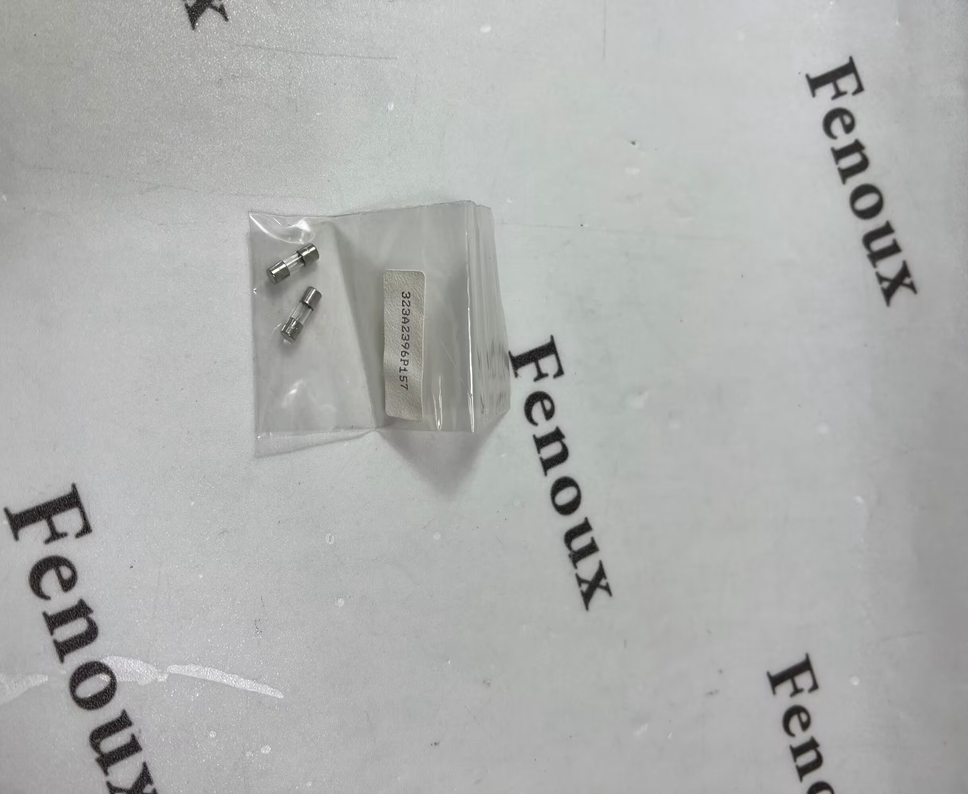EATON ZB 150-70 Output module
Brand: Eaton
Model number: ZB 150-70
Colour:new
Warranty: 12 months
Lead Time:3-day working day
Country of origin: USA Price: Please contact us
Product weight:0.21kg
Shipping Port: China
Payment: Bank of Chicago, Bank of Singapore
Express cooperation: fedex, DHL, UPS and your express account
Service: Professional Sales provides 24 hours /7 days online service
EATON ZB 150-70 Output module
Eaton Series RCBOs Overview
Eaton's Residual Current Circuit Breakers with Overcurrent Protection (RCBOs) are essential electrical safety devices that combine the functions of a Miniature Circuit Breaker (MCB) and a Residual Current Device (RCD) into a single, compact unit. They are designed to provide comprehensive protection against various electrical faults, including overcurrents (overload and short circuits) and earth leakage currents (residual currents), safeguarding both personnel from electric shock and equipment from damage.
Product Detailed Description
Dual Protection: RCBOs offer dual protection by integrating both overcurrent protection (like an MCB) and earth fault protection (like an RCD). This means they trip in response to:
Overload: When the current drawn by a circuit exceeds its rated capacity.
Short Circuit: When a low-resistance path causes a sudden surge of current.
Earth Leakage: When there is an imbalance between the live and neutral currents, indicating a leakage to earth (e.g., due to faulty insulation or a person touching a live part).
Combined Functionality: By combining two functions into one device, RCBOs save space in distribution boards and simplify wiring compared to installing separate MCBs and RCDs.
Fault Isolation: A key advantage of RCBOs, especially when installed on individual circuits, is their ability to isolate faults. If an earth fault or overcurrent occurs on one circuit, only that specific RCBO will trip, leaving other healthy circuits operational and minimizing disruption.
Operating Principle:
Overcurrent Detection: Utilizes thermal-magnetic tripping mechanisms to detect overload and short circuit currents.
Earth Leakage Detection: Employs a toroidal transformer to detect current imbalances between live and neutral conductors. If an imbalance exceeds a predetermined threshold (rated residual operating current, IΔn), the RCBO rapidly trips.
Types (depending on residual current waveform detection):
Type AC: Detects sinusoidal AC residual currents.
Type A: Detects sinusoidal AC residual currents and pulsating DC residual currents.
Type F, Type B: Detects more complex residual current waveforms (e.g., smooth DC, high-frequency components), often required for specific applications like EV charging or variable speed drives.
Product Parameters
Eaton offers various series and models of RCBOs, and specific parameters will vary. Here are typical parameters you would find:
Rated Current (In): Common ratings from 6 A to 63 A (e.g., 6A, 10A, 16A, 20A, 25A, 32A, 40A).
Number of Poles:
1P+N: Single pole (live) plus switched neutral. This is common for domestic and single-phase commercial applications.
2P, 3P, 3P+N, 4P: Available for multi-phase circuits in industrial settings.
Rated Voltage (Ue): Typically 230V AC for 1P+N, up to 400V AC for multi-pole versions.
Rated Residual Operating Current (IΔn - Trip Sensitivity):
High Sensitivity (Personnel Protection): 10 mA, 30 mA (most common for protecting against direct contact).
Medium Sensitivity (Equipment Protection/Fire Prevention): 100 mA, 300 mA.
Low Sensitivity (System Protection): 500 mA, 1000 mA.
Tripping Characteristics (for overcurrent protection):
Type B: Trips quickly (3 to 5 times In), for resistive loads or very short cable runs.
Type C: Trips moderately (5 to 10 times In), most common for general domestic and commercial applications (e.g., lighting, sockets).
Type D: Trips slowly (10 to 20 times In), for highly inductive loads with high inrush currents (e.g., motors, transformers).
Rated Short-Circuit Breaking Capacity (Icn): The maximum fault current the RCBO can safely interrupt (e.g., 6 kA, 10 kA).
Rated Insulation Voltage (Ui): Max voltage the insulation can withstand (e.g., 440V, 500V).
Rated Impulse Withstand Voltage (Uimp): Max transient overvoltage the device can withstand (e.g., 4 kV).
Mechanical Life: Number of operating cycles (e.g., 20,000 operations).
Electrical Life: Number of electrical operations (e.g., 10,000 operations).
Mounting: DIN rail mount.
Terminal Type: Screw terminals (tunnel type for flexible/rigid conductors).
Degree of Protection (IP): Typically IP20 (for the terminals, when installed in an enclosure).
Operating Temperature: Typically -25°C to +55°C.
Standards Compliance: IEC/EN 61009-1 (general RCBO standard), AS/NZS 61009-1 (Australia/New Zealand), UL (for North American markets), CCC (China), CE.
Product Advantages
Enhanced Safety: Provides superior protection against electric shock and fire hazards by detecting even small earth leakage currents, in addition to overcurrents.
Space Saving: Combines RCD and MCB functionality into a single device, reducing the footprint in distribution boards.
Simplified Installation: Single-unit installation reduces wiring complexity and time compared to separate components.
Selective Protection: Allows for individual circuit protection, so a fault in one circuit doesn't trip the entire system, ensuring continuity of service in other parts of the installation.
Reduced Nuisance Tripping: Advanced designs and types (e.g., Type A, F, B) help to minimize unwanted tripping in certain applications.
Robust and Durable: Designed for long mechanical and electrical life, ensuring reliable operation over time.
Flexibility: Available with various current ratings, trip sensitivities, and tripping characteristics to suit diverse applications.
UV-Protected Casing: Some models feature UV-protected casings, making them suitable for installations where they might be exposed to direct sunlight.
Precautions
Correct Selection: Always choose the RCBO with appropriate current rating, trip sensitivity, tripping characteristic (B, C, D), and residual current type (AC, A, F, B) for the specific circuit and load being protected.
Proper Installation:
Disconnect Power: Ensure the main power supply is completely disconnected before any installation or wiring work.
Secure Mounting: Firmly secure the RCBO to the DIN rail.
Correct Wiring: Follow the manufacturer's wiring diagram precisely. Pay attention to line/load connections (some RCBOs can be connected from top or bottom) and ensure proper connection of live, neutral, and earth conductors.
Tighten Terminals: Ensure all cable connections are tightened to the specified torque to prevent loose connections, overheating, and potential fire hazards.
Earth Bar Connection: A PE (protective earth) cable should always be connected to the earth bar.
Regular Testing: RCBOs should be regularly tested (typically every 3 months or as per local regulations) using the built-in "TEST" button to ensure their residual current detection function is working correctly.
Environmental Conditions: Ensure the RCBO is installed in an environment within its specified operating temperature, humidity, and pollution degree ranges.
Troubleshooting: If an RCBO trips, identify and rectify the cause of the fault (overload, short circuit, or earth leakage) before resetting it. Do not repeatedly reset a tripping RCBO without investigating the cause.
Compatibility: Ensure compatibility with other electrical components in the distribution board (e.g., busbars, enclosures).
Product Applications
Eaton RCBOs are widely used across various sectors due to their comprehensive protection capabilities:
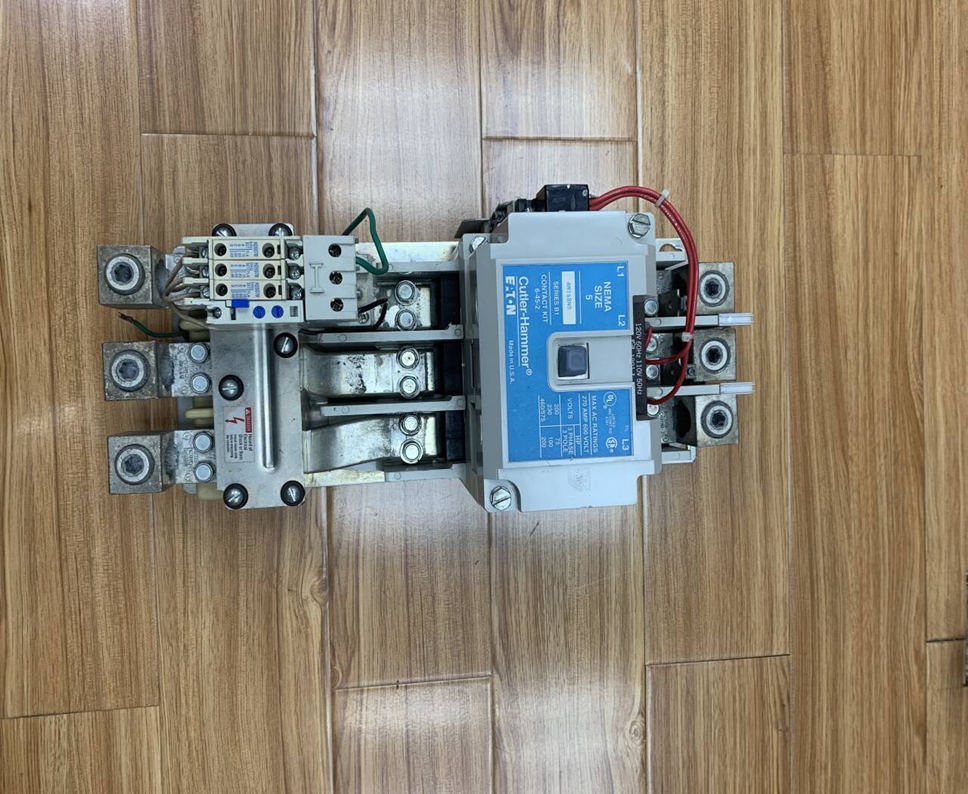
Shipping Port: China
Payment: Bank of Chicago, Bank of Singapore
Express cooperation: fedex, DHL, UPS and your express account
Service: Professional Sales provides 24 hours /7 days online service
Related products:
| EATON | PW5115 | EMBEDDED | CONTROLLER |
| EATON | 6702ED584-2 | Emcore | RT-01-S-905 |
| EATON | 92-00744-03 | ENDRESS | 63MT15-SAA00B25 |
| EATON | XV-440-10TVB-1-20 | ENDRESS | 63MT15-SAA00B25 |
| ebm | W2S130-AA01-16 | ENDRESS | 63MT15-SAA00B25 |
| ECI | NPB-20P-G2-2P-10GE | ENDRESS HAUSER | AG319100-0200C AG319100-0200D |
| ECI | NPB-20P-4P-10GE | Energy | R27-293721-00 |
| EDL COMAT | E45FL | Energy | 3156024-131A |
| EG | MH2640-1088 | ENERPAC | WFT-72V |
| EH | 319083-0200 | Engineering | FPC1700-P-RA |
| ELECTRIC | HE697BEM600D | ENTEK | 6622LS |
| Electric | HPK10ZI-TE1 | ENTEK | c6691 |
| Electric | DFK45Z-JA4E | ENTEK | C6625-HIS/2 |
| ELECTROCRAFT | F-6200-Q-H00AA | ENTEK | 1440-VSE02-01RA |
| ELECTROMOTIVE | CIMR-F7U4037 | Entek | 1440-VSE02-01RA |
| ELITE | CMF010M323NU | ENTERASYS | C2RPS-CHAS2 |
| ELMO | IBD-8/270HHO | ENTERASYS | C2RPS-PSM |
| ELTEX | KNH34 | ENTERASYS | A2H124-24 |
| ELTEX | KNH34 | ENTERASYS | A2H124-24FX |
E-mail: alex@fenoux.com
Tel.: +86 13338369201
Skype: +86 13338369201
WhatsApp: +86 13338369201


